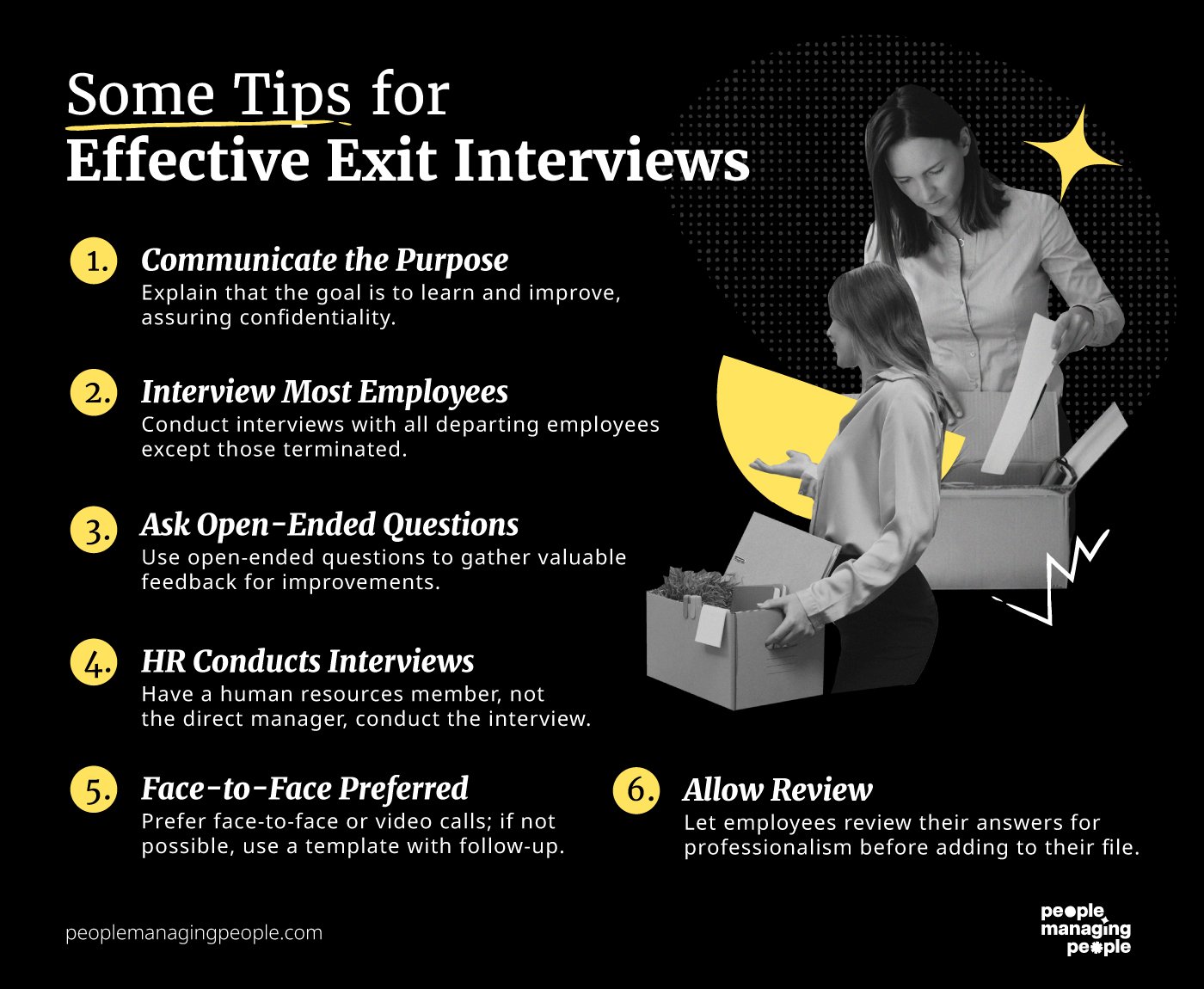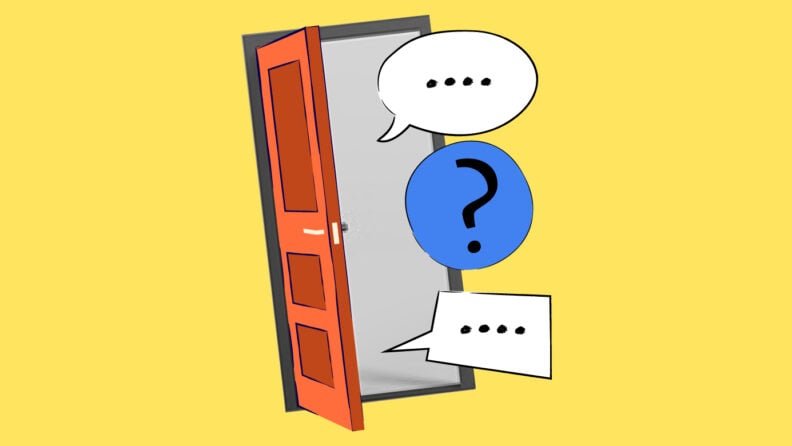I’ve conducted a lot of exit interviews and, although it might seem awkward, I enjoyed this role because exit interviews can be a valuable source of employee feedback.
Incorporating an effective exit interview process into your offboarding will help you uncover valuable information to help improve the employee experience for remaining employees.
This you’re no doubt aware of but, since you’re here, perhaps you’re not sure what to ask to get the most valuable feedback.
To help you out, here's a list of common exit interview questions to get you started.
You'll want to tailor these to the specifics of your organization and the departing team member, but these are a good place to start.
Exit Interview Questions
Mix and match these questions to gather constructive feedback that you can use to improve the work environment for current and future employees.
Reasons for leaving
- Why have you decided to leave the company?
- Did any specific events cause you to start looking for a new job?
- Are there any other reasons for your departure that you'd like to add?
- Did you share your concerns with your supervisor or anyone else prior to accepting your new position?
- What ultimately led you to accept your new position?
Role-specific
- What aspects of your role here did you enjoy and value the most?
- What aspects of your role here did you find the most challenging?
- Did you feel your role here was well-defined with clear expectations? If not, what was missing?
- Was your role here what you expected?
- How would you describe the onboarding process?
- How would you describe the work-life balance?
Manager-specific
- Can you describe your relationship with your manager?
- Were you satisfied with the way you were managed?
- Did you receive sufficient feedback on your performance?
- What was your experience of the performance review process like?
- Did you have clear goals and objectives?
Team-specific
- Can you describe your relationships with other members of your department?
- Do you have any suggestions or advice to help your team/your department work more efficiently in the future?
Development-focused
- Did you feel that you were properly equipped to do your job well and fulfill your role and responsibilities?
- Was there any training or other development opportunities that you felt were missing for you to be successful in your role?
Inclusion questions
- Did you feel comfortable contributing ideas or providing feedback? If not, why not?
- Did you feel listened to as a valued member of the team?
Organization-focused
- Do you have any feedback on our company procedures or policies? Were they clear and easy to follow, or were they confusing and inconsistent?
- Do you have any suggestions to help us improve our workplace policies?
- How would you describe the current company culture?
- How would you describe employee morale right now?
- Do you feel like the company lives by our core values?
- During your time with us, did you experience any big changes that personally affected your role or your feelings towards the company as a whole?
- How would you compare our salary and benefits package with that of your new company?
- What could we have done to improve your experience at the organization?
- Would you consider working here again in the future?
- Would you recommend the company as a good place to work to a friend or relative?
- Do you have any additional feedback you'd like to share that we haven't touched upon already?
Exit Interview Template
It's recommended that you stick to the questions in your template to standardize the process and help you compare the data from different interviews.
However, should someone drop a bombshell e.g. like they feel they're being discriminated against, then it's time to dig deeper.
Use this exit interview template to help you prepare for and conduct an effective exit interview.
Get our exit interview template!
Exit Interview Tips
Remember that the purpose of conducting an exit interview is to uncover the truth about their reasons for leaving and spot potential issues.
You’re asking them for their honest feedback, not just what you want to hear. There are no wrong answers to these questions. Instead, their feedback will stand alone as a record of their personal experience.

Here are some best practices to help you get the most out of your exit interviews.
- Communicate the Purpose. Make it clear to the employee that the purpose of the interview is to learn and improve and that their feedback will be treated confidentially.
- Interview (almost) everyone. I don’t suggest holding an exit interview with someone who’s had their employment terminated, but everyone else is fair game (including those who are retiring).
- Ask open-ended questions. By asking open-ended questions such as those above, you’ll have the data you need to make changes for your current employees and improve employee retention overall.
- The interview should never be undertaken by the direct manager of the exiting employee. Exit interviews are best carried out by a member of the human resource department.
- Face-to-face is best. It’s always better to conduct the interview face-to-face (or over a video call), but, if that’s not possible, then it’s fine to make a template and have them answer the questions independently. You can always follow up in the comments for more detail.
- Allow them to review. Allow the option for the employee to review their answers in writing but it’s committed to their employee file, especially if there were a lot of negative issues covered. As it’s a professional setting, it's important that their feedback is framed professionally and the person leaving will likely want to leave a good impression.
If you're new to the exit interview process, be sure to check out our article on How To Conduct An Exit Interview for a deeper dive into exit interview best practices.
Exit Interviews As Part Of A Wider Employee Listening Strategy
Exit interviews are a useful method for collecting employee feedback that will feed into your hiring, retention, development, and employee engagement strategies.
But, while it’s important to get this type of feedback from your staff who are leaving, it’s also important to keep the lines of communication open with your current employees too.
Other effective employee listening methods include:
Join The People Managing People Community
For further support on conducting exit interviews and other talent management strategies, join our community of HR and business leaders sharing knowledge to help you progress in your career and make greater impact in your organization.



